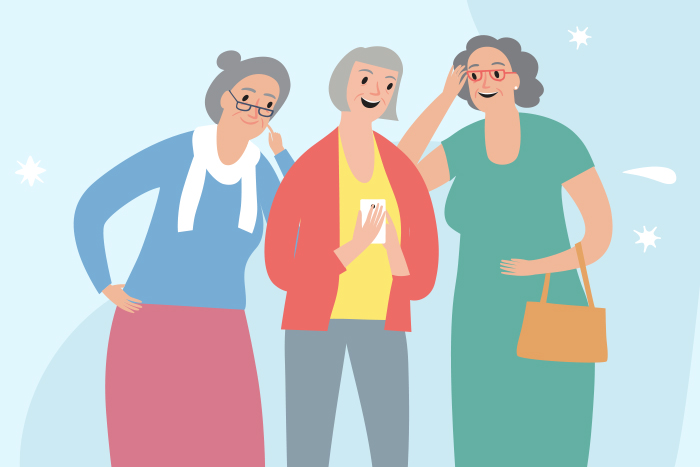How Staying Social Can Help with Depression
As we get older, it’s common for life to change. Friends may move away. Family may be busy. Health problems can make it harder to get out. These changes can leave you feeling lonely, but being alone too much can make depression worse.
The good news? Staying in touch with others can help you feel better. Even small steps—like talking on the phone or going to a group event—can lift your mood.
Being Social Helps Your Mental Health
When you spend time with people you care about, you feel more connected. This can make you happier and less stressed. Being around others also gives you a reason to get up and get moving.
When you are alone a lot, you may start to feel sad, tired, or worried, and these are common signs of depression. Talking to others, even just once a day, can help keep those feelings from getting worse.
Easy Ways to Stay Connected
You don’t have to be around people all the time. Small moments of connection can make a big difference. Here are a few easy ideas:
Phone or Video Chat: Try calling a friend or family member once or twice a week. Seeing someone’s face, even on a screen, can brighten your day.
Join a Group: Look for book clubs, walking groups, or craft classes. Your local senior center or church may have activities, too.
Volunteer: Helping others feels good. Many groups need volunteers to greet people, make phone calls, or help with small jobs.
Go to Events: Check your town’s calendar for fairs, library talks, or concerts. These are good places to meet others.
Get a Pet: Dogs, cats, or even birds can be great companions. Taking care of a pet can give you purpose and joy.
What if it feels hard?
Sometimes it’s tough to reach out. Maybe you don’t feel well or have trouble getting around. But there are smaller steps that can make it easier to stay connected to others:
Ask for a Ride: Family, friends, or senior services in your area may be able to help with rides.
Get Involved Online: If it’s hard to leave home, you can join virtual groups or take online classes using a tablet or computer.
Start Small: Just saying hello to a neighbor or smiling at someone at the store is a good first step.
Let People Know How You Feel: If you’re feeling lonely, tell someone you trust. They may not know you want company and would be happy to help.
Talk to Your Doctor
If you feel very sad, lonely, or tired most of the time, talk to your doctor. These can be signs of depression. Your doctor can help you find the right support, including therapy or medication if needed.
You don’t have to face these feelings alone.
Keep Reaching Out
Staying social is good for your mental health. Start small by talking to someone on the phone or spending time with others, which can help you feel more hopeful. If you’re not sure where to start, reach out to a friend, family member, or your doctor. There are people who care and want to help.
Sources:
National Institute on Aging: Social isolation, loneliness in older people pose health risks
National Institute on Aging: Depression and Older Adults
National Institute on Aging: Loneliness and Social Isolation: Tips for Staying Connected

